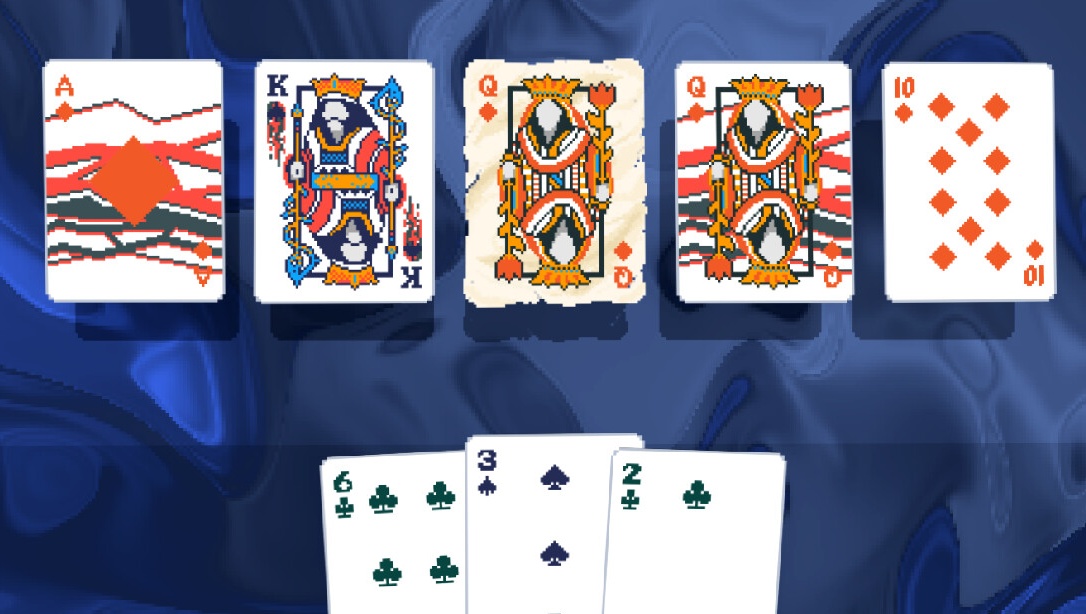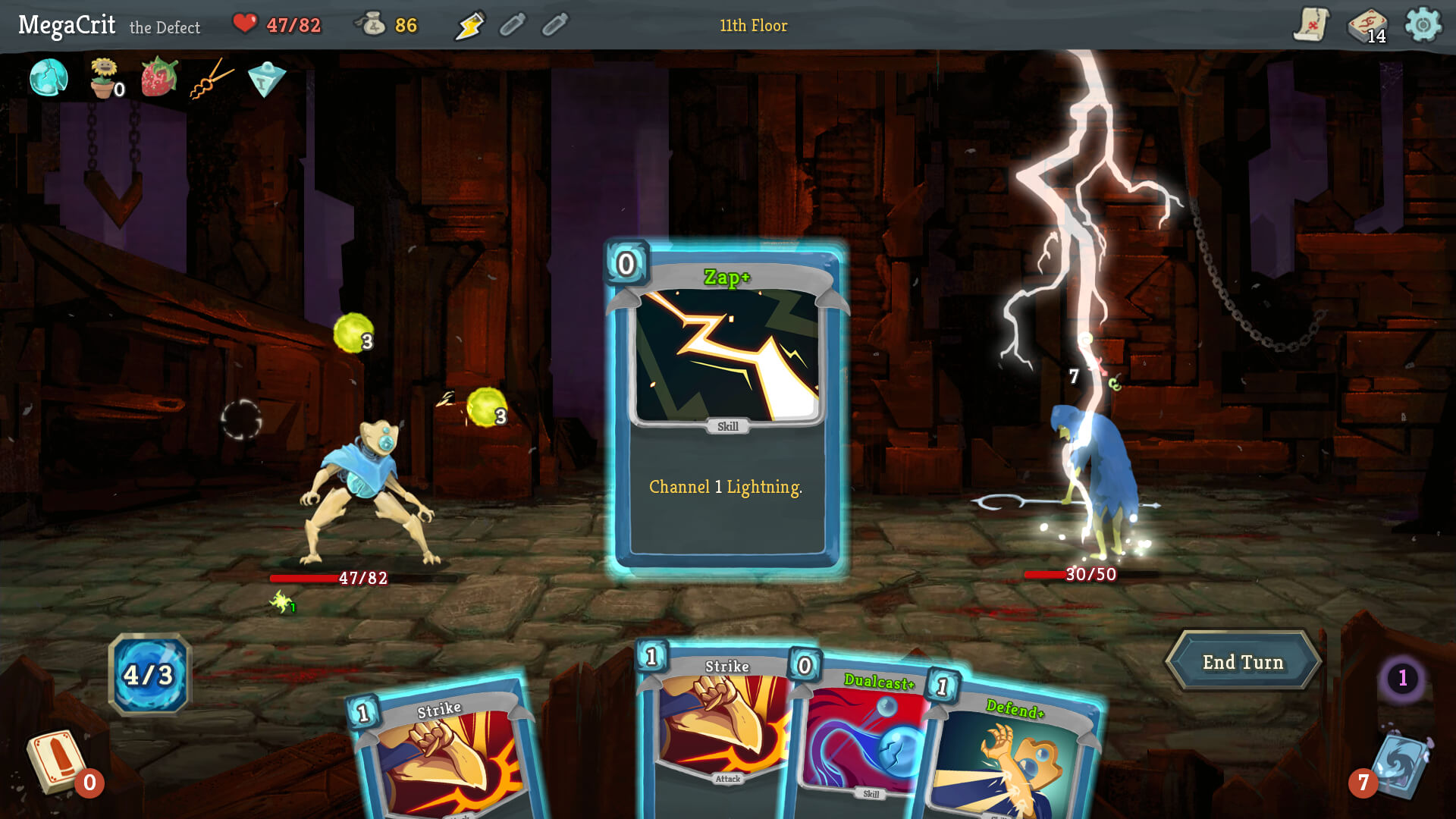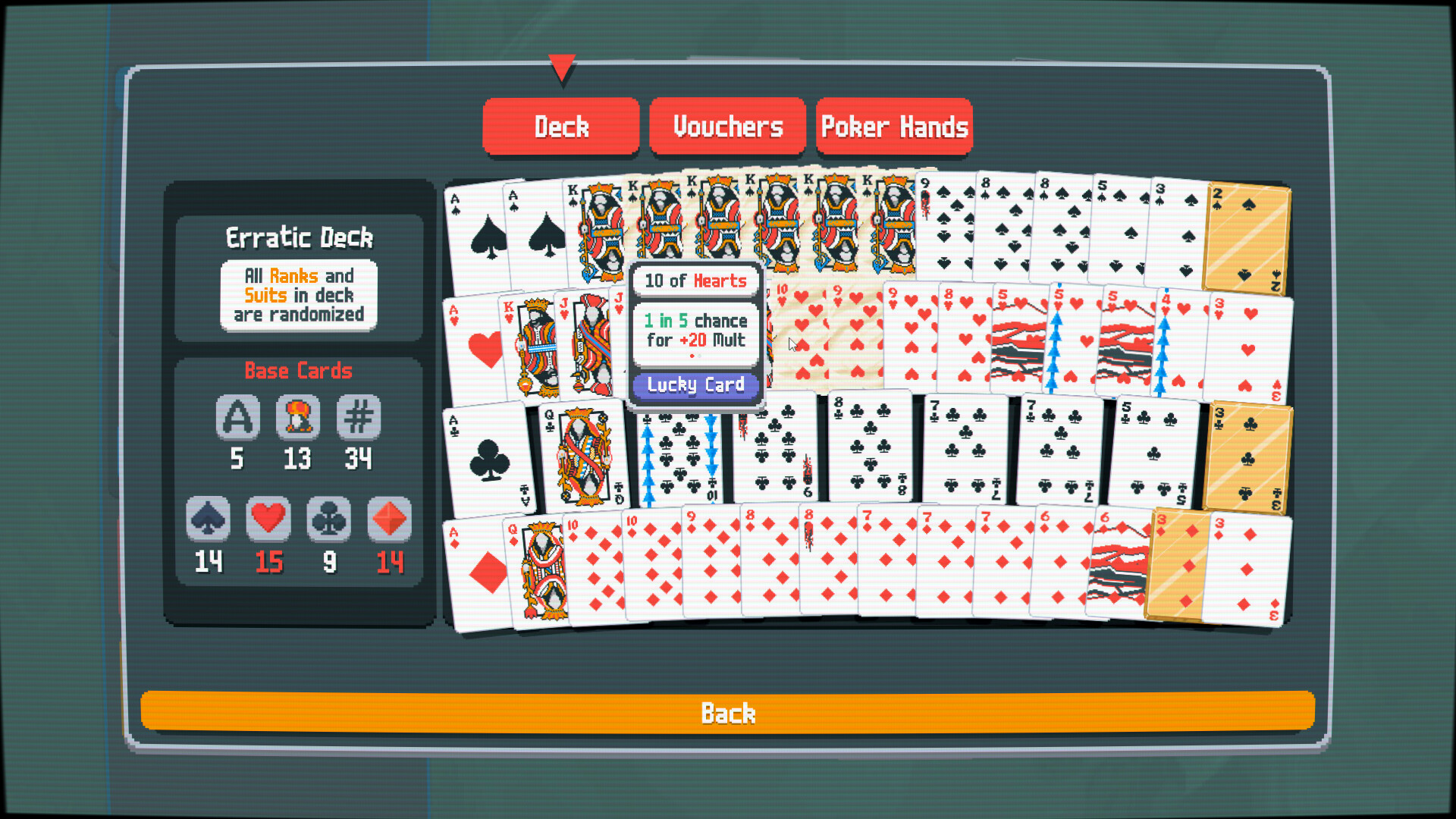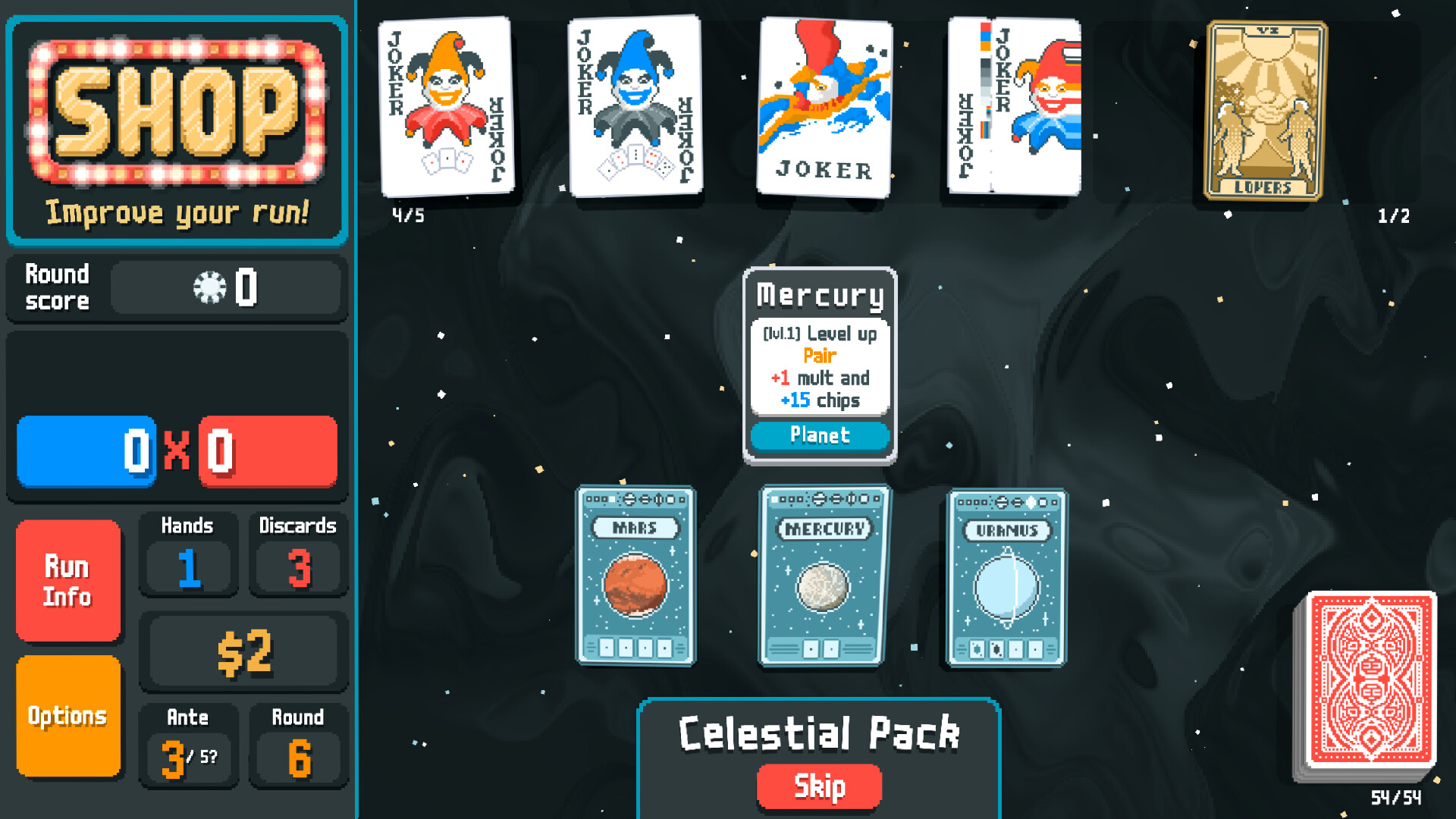Even if you don't like deckbuilders, you need to try Balatro
This poker-based roguelike is a cheat code to experiencing the best of deckbuilding.

Slay the Spire was awarded 92% in our review, and has been a fixture of our annual Top 100 ever since its release back in 2019. Five years later, it still holds an Overwhelmingly Positive rating on Steam. It is, without question, a classic—the game that launched the modern obsession with deckbuilding. I've always felt bad that I just don't get it.
I played Slay the Spire for about two hours. Even in that short time, it was obvious that it was good. It was also obvious that I was out of my depth. Its absurdly intricate, interconnected design felt like it gave me no way in. It's not just that I had a lot to learn, it's that I didn't even know where to start.

The breaking point for me was overhearing one of the PCG team's many conversations about the game after its launch. "The trick," someone said, "is understanding which cards to remove from your deck." I'd just been merrily acquiring new cards, assuming I was growing more powerful. In retrospect it was obvious that I was just ruining my own builds, adding in trash that delayed the good cards from being drawn. This should have been a eureka moment, but instead it had the opposite effect.
Every decision was paralysing. Is this a good card, or will it prove fatal to my run? I'm winning battles, but am I already behind the power curve? God, I've already messed this up, haven't I?
Trial and error is a standard game design classic, but when you don't even have a basic grounding for the concepts you're supposed to be trialling, you're looking at a lot of errors—and often with no guarantee that you'll be learning the right lessons from them. Maybe if I took the relevant crash course in how it worked—asked the right questions, watched the right YouTubers—I'd eventually crack it. But that felt like a lot of effort when other genres were out there offering more immediate gratification.
In the subsequent years I bounced off other much-loved deckbuilders for similar reasons. Ultimately, I figured, the genre just wasn't for me. Until I played Balatro.

Balatro is a roguelike deckbuilder about poker—one of the most iconic and recognisable card games in the world. I understand poker, I know its hands, and, at the basic level, Balatro wields its theme intuitively. Play a straight flush, you will earn a lot of points. This makes sense. I get it.
Keep up to date with the most important stories and the best deals, as picked by the PC Gamer team.
This instantly recognisable setup—this shared cultural touchstone—is a cheat code to skip straight to the parts of deckbuilders that people who understand the genre enjoy. Between each round you visit a shop and get to mess with both your deck and the way it gets scored. Jokers are essentially your build, modifying the points you earn after playing each hand. Crucially, though, the thing they're modifying remains recognisably the same game. It's still poker, you're just making it weird.
Maybe I've got a joker that awards extra points for playing a flush. And another that increases the multiplier for each heart that I play. Suddenly I have an obvious goal: using arcana cards to modify my deck so I have more hearts, so that I can play more flushes. And yeah, let's buy some cards with the Wild Card enhancement, that let them work as any suit. And of course I want to discard cards from other suits whenever I can—that's just the natural, obvious move based on how this build works.

Every new complication is interesting for how it feeds back to the original ruleset. You can upgrade specific hands to do more points, ending up in a place where, say, a three-of-a-kind awards more points than a royal flush. You can enhance cards in your deck to trigger effects when they're played, discarded, or held. And every three rounds, you face a boss—a special modifier that debuffs your deck in some way. By overcommitting to hearts, I was obviously screwed when I faced the boss that nullified hearts from scoring. Lesson learned. Don't over-specialise. You gotta know when to hold 'em.
Balatro is no less complex than any other quality deckbuilder. It's no less random. It's no less reliant on trial and error. All it took for me to get it was having something recognisable to latch onto. Chips and blinds, not Jaw Worms and Sentries. Kings and jacks, not Ironclads and Defects. Once you're familiar with the grounding, everything extra becomes a joy to learn and discover.
Maybe it's the push I need to go back to those other roguelike deckbuilders—to finally figure out Slay the Spire. But I'm already tens of hours deep into Balatro, and I'm not in any danger of slowing down. You've also got to know when to fold 'em.

Phil has been writing for PC Gamer for nearly a decade, starting out as a freelance writer covering everything from free games to MMOs. He eventually joined full-time as a news writer, before moving to the magazine to review immersive sims, RPGs and Hitman games. Now he leads PC Gamer's UK team, but still sometimes finds the time to write about his ongoing obsessions with Destiny 2, GTA Online and Apex Legends. When he's not levelling up battle passes, he's checking out the latest tactics game or dipping back into Guild Wars 2. He's largely responsible for the whole Tub Geralt thing, but still isn't sorry.

